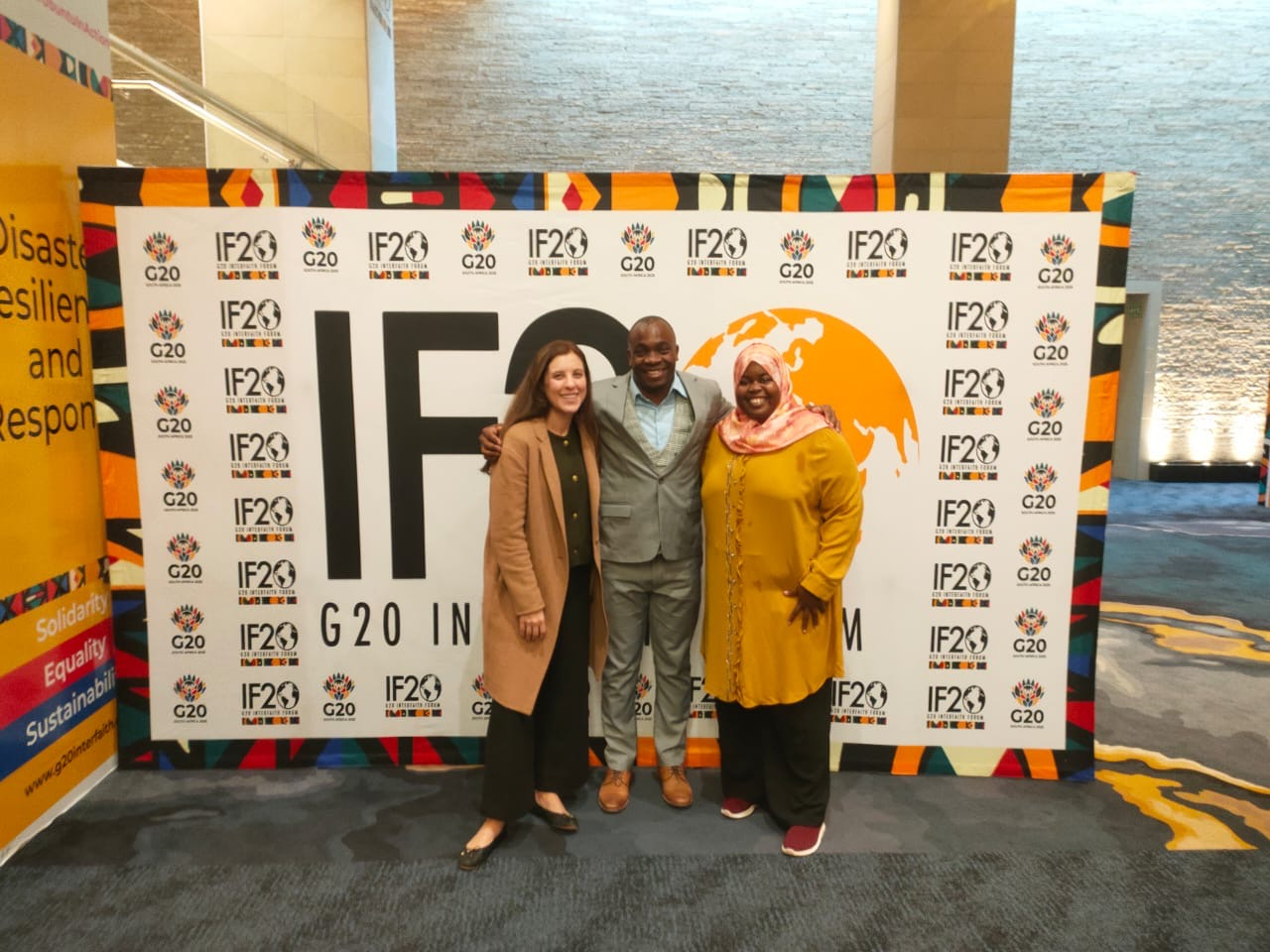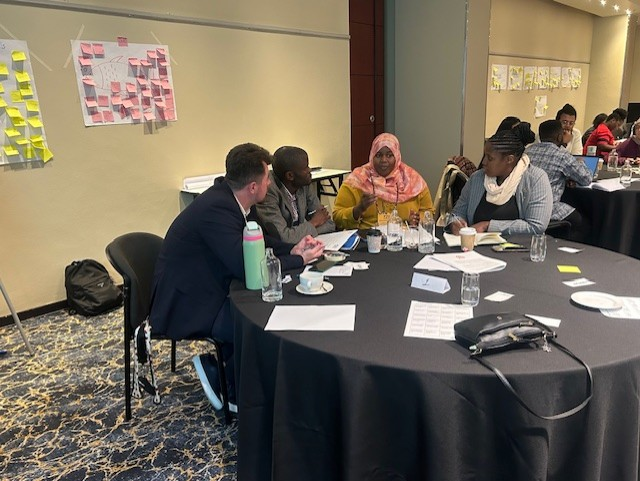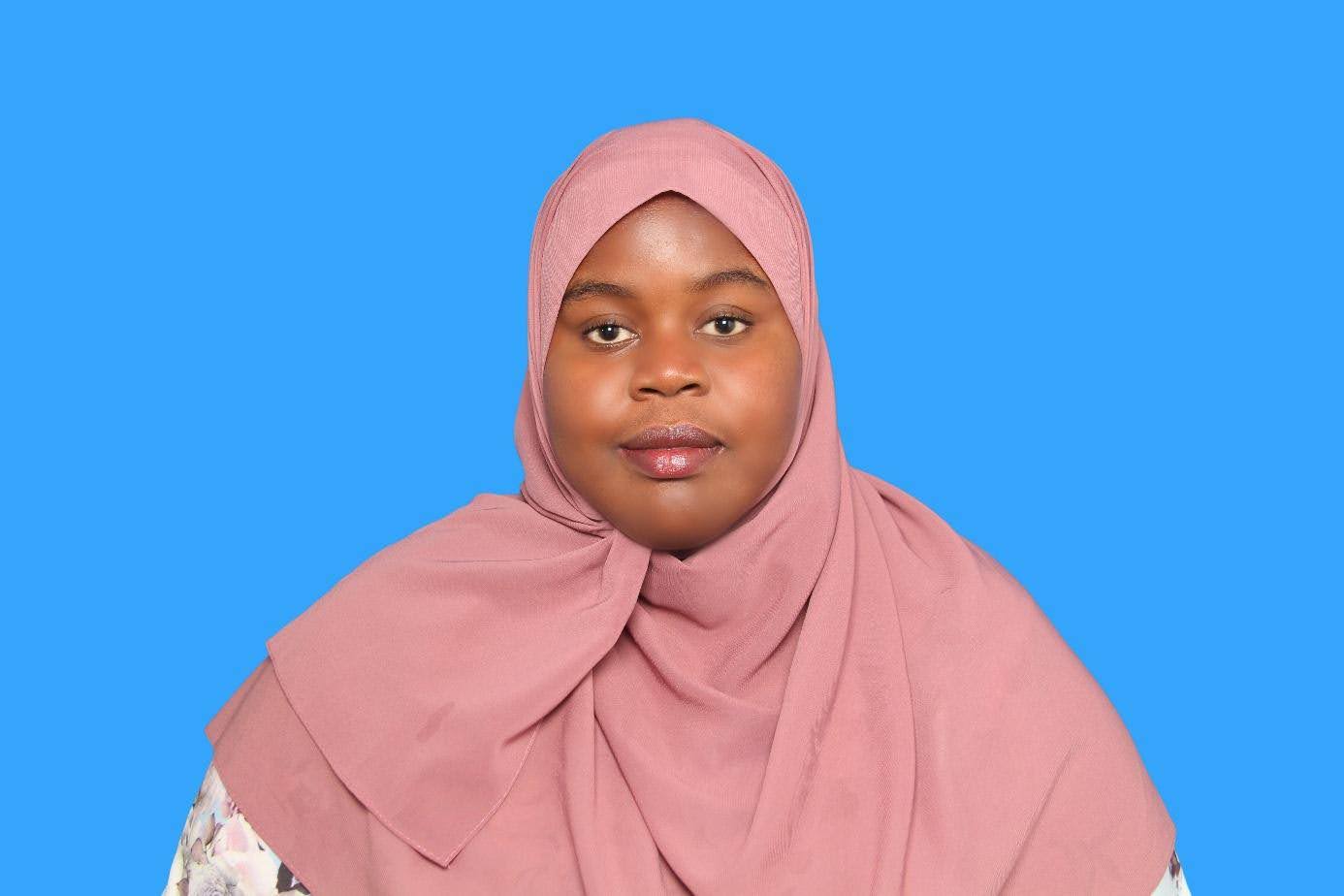Blog
My Experience at the IF20 Interfaith Forum in Cape Town, South Africa
A reflection piece by Hidaya Maulidi Dude, Administrative Assistant at Deutsche Gesellschaft für Internationale Zusammenarbeit (GIZ Tanzania) on her participation at the G20 Youth and Interfaith Forum in Cape Town South Africa.

From left to right: Jessica Roland, Sahlim Charles and Hidaya Dude at the IF20 in South Africa. 2025.
When I first received the opportunity to participate in the G20 Interfaith Forum 20 (IF20) in Cape Town, South Africa, I expected it to be a typical international conference where global issues would be discussed, and relations across faiths would be emphasized. However, what I encountered was far more transformative. The Forum provided a dynamic and enriching space that deepened my understanding of interfaith relations, peacebuilding, diversity, and compassion. It was also an inspiring showcase of the impactful work others are doing globally to advance peace and coexistence.
The opening day with the youth platform facilitated by A Common Word Among the Youth (ACWAY) set the tone. It was energizing to see young leaders from different backgrounds come together, share experiences, and articulate how interfaith collaboration can transform communities. For me, this was not just about listening, it was an opportunity to learn, exchange, and expand my own perspective on the importance of interfaith dialogue in addressing pressing challenges.

Hidaya Dude talking about her e-advocacy messaging on the topic of economic and financial action during the YIF20 training. 2025.
Platforms such as IF20 are particularly important because they advocate for youth participation and leadership. They create inclusive spaces where young people can contribute their voices and perspectives on global issues such as peace, climate change, justice, migration, and interreligious relations. In Cape Town, I witnessed firsthand how IF20 empowered young people to engage meaningfully with policymakers, faith leaders, and civil society representatives, ensuring that youth were not just participants but active contributors.
This engagement builds leadership skills, confidence, and visibility for youth while fostering collaboration between generations. Youth are often seen as beneficiaries of peace processes; however, at the IF20, they were recognized as equal partners whose ideas, energy, and innovation could influence global agendas, including G20 recommendations. Such recognition is critical for ensuring that youth priorities and solutions are not overlooked in global decision-making.
As a person of faith, my own work in advancing interfaith dialogue and peacebuilding is rooted in creating inclusive spaces for cooperation and mutual respect. I draw upon values such as compassion, justice, and service, and I believe dialogue should not end with conversations but should be translated into meaningful action. In my role, I have facilitated trainings, youth empowerment initiatives, and community projects that bring together Christians, Muslims, and people of other traditions to collaborate on shared challenges. These initiatives, whether focused on peaceful elections, gender equality, or sustainable development, have demonstrated the power of interfaith cooperation in addressing local needs while strengthening trust and reducing stereotypes. For me, interfaith dialogue is both a moral conviction and a practical tool to build inclusive, peaceful societies.
The IF20 discussions highlighted how policymakers and international stakeholders can further enhance the role of youth of faith in addressing the key themes of the conference ranging from food security and poverty to migration, human trafficking, and disaster response. Meaningful steps include creating formal platforms for participation, such as youth advisory councils within interfaith and policy structures; investing in capacity building through training and mentorship; and funding youth-led initiatives that focus on livelihoods, education, and peacebuilding.
Additionally, stakeholders should recognize faith as a driver of action, given its ability to inspire trust and grassroots mobilization. Strengthening intergenerational dialogue is also vital, ensuring that youth perspectives complement the wisdom of senior leaders. Finally, including youth of faith in global forums and delegations ensures that their voices help shape the commitments and policies that affect their future.
My experience in Cape Town affirmed that youth of faith have the potential to be powerful agents of peace and development when given the right opportunities. But for this potential to be fully realized, policymakers, religious leaders, and international institutions must move beyond symbolic inclusion.
Call to Action
I urge governments, interfaith networks, and global institutions to commit to the meaningful inclusion of youth of faith in decision-making processes. This requires not only opening doors but also equipping, funding, and empowering young people as equal partners. The challenges we face, poverty, climate change, migration, and conflict demand solutions that are innovative, compassionate, and inclusive. By investing in youth of faith today, we are not only shaping leaders for tomorrow but also building a foundation of peace, justice, and resilience for generations to come.

About Hidaya Maulidi Dude
Hidaya Maulidi Dude is an Administrative Assistant at Deutsche Gesellschaft für Internationale Zusammenarbeit (GIZ Tanzania) with a strong background in peacebuilding, interfaith dialogue, and community engagement. With nearly four years of experience as a facilitator, trainer, and project assistant at organizations such as the Norwegian Church Aid and the Zanzibar Interfaith Centre, she has worked extensively to empower youth, women, and religious leaders through training on peacebuilding and interfaith relations.
Passionate about volunteerism, Hidaya serves as Country Coordinator for the Program for Christians and Muslims Relations in Africa (PROCMURA), focusing on freedom of religion or belief. She has also contributed to initiatives such as Kimbia Bila Shaka, promoting women’s participation in movement and self-awareness, and Waking the Giants, where she trained youth on the Sustainable Development Goals, with a focus on SDG 5 (Gender Equality) and SDG 16 (Peace, Justice, and Strong Institutions).
Hidaya thrives in diverse environments and enjoys learning, meeting people from different backgrounds, and exchanging ideas that foster peace, inclusion, and social change. Guided by her belief in building bridges across differences, she is committed to creating positive impacts and advancing meaningful community engagement.
Follow the Peacemakers Network on social
